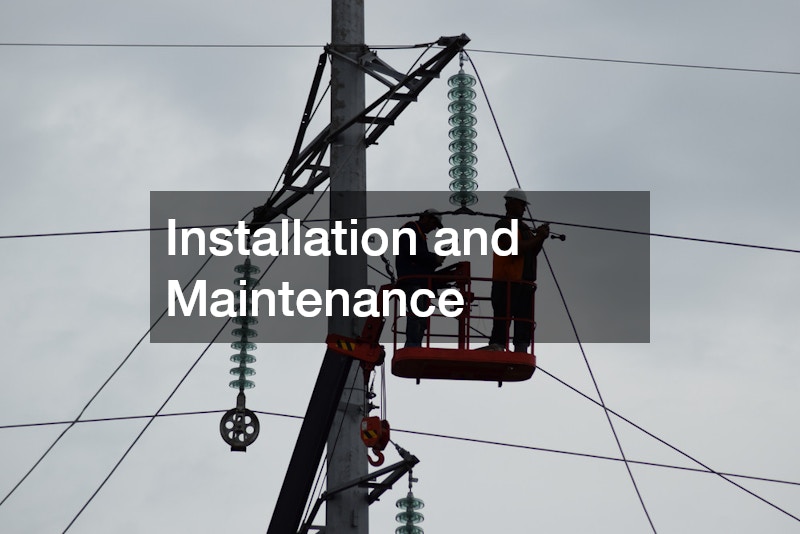Having a backup generator is no longer a luxury but a necessity. This article explores the vital role of backup generators in ensuring continuity and safeguarding against power loss. Indeed, the unpredictability of weather and increased strain on electrical grids make power outages more frequent, which necessitates the adoption of reliable solutions like backup generators.
Why is a Backup Generator Important for Your Home?
Protecting Household Essentials
Backup generators are essential for maintaining power to critical household appliances during outages. Imagine a scenario where your refrigerator stops working due to a power cut, leading to food spoilage. Additionally, for homes with medical equipment that relies on electricity, such as oxygen concentrators, a backup generator becomes a literal lifesaver, ensuring these devices operate without interruption.
It’s not just about convenience; it’s about necessity and preparation for unexpected events. For households with elderly members or people with disabilities, uninterrupted access to electricity-powered health-support equipment is crucial. A backup generator provides the peace of mind that comes with knowing essential appliances will continue to run smoothly, regardless of external power issues.
In many regions, power outages can last for hours or even days following severe weather events. During these times, families can stay assured that their stored food and essential appliances are safe. By preventing food spoilage and facilitating continued care through medical equipment operation, a backup generator proves to be an invaluable asset for any home.
Ensuring Comfort and Safety
A backup generator plays a critical role in maintaining home comfort and safety. Power outages can disrupt heating, ventilation, and air conditioning (HVAC) systems, creating uncomfortable and potentially hazardous conditions in extreme weather. Additionally, home security systems, which often rely on electricity, can be compromised during blackouts, leaving homes vulnerable.
For families residing in areas with harsh winters, a backup generator ensures that heating systems remain operational, protecting pipes from freezing and preventing the house from becoming inhospitable. Similarly, in hot climates, air conditioning is vital for health and comfort, especially for the elderly and young children. A generator ensures these systems continue to function, preserving the home environment.
Moreover, having a backup generator means that your home’s security systems remain active, deterring potential intruders who might exploit power outages. The ability to maintain lighting and surveillance systems enhances safety, offering peace of mind. Thus, a backup generator is integral to keeping a home not only comfortable but secure as well.
How Does a Backup Generator Work?
Generator Basics
At its core, a generator converts mechanical energy into electrical energy. The basic components of a generator include an internal combustion engine, an alternator, a fuel system, and a voltage regulator. These components work together to ensure that when the main power supply fails, the generator automatically starts to provide power.
The internal combustion engine drives the alternator to produce electricity. A voltage regulator controls the power output, ensuring it is safe for home appliances. The fuel system, which can use gasoline, diesel, or natural gas, supports the operation by providing the necessary energy to keep the generator running.
Types of Backup Generators
There are several types of generators available for residential use, each suited to different needs and preferences. Portable generators are popular for their versatility and can be moved around as needed, appropriate for short-term power needs. Standby generators, installed permanently outside the home, offer more comprehensive and automatic power restoration capabilities.
Portable generators are generally more affordable and ideal for families looking for a cost-effective solution for short-term outages. However, they require manual setup and operation, which might not be convenient for everyone. Standby generators, although more expensive, engage automatically when a power failure is detected, providing an uninterrupted power supply.
What Should You Consider When Purchasing a Backup Generator?
Sizing and Power Needs
Choosing a correctly sized generator is crucial to ensure an efficient power supply to your home. To determine the size and power capacity needed, homeowners must assess the combined wattage of essential appliances. This evaluation ensures the selected generator can sustain all necessary devices during an outage without overloading.
Typically, a household’s power requirement might include refrigerators, HVAC systems, security systems, and other essential electronics. Consulting with a professional can help in calculating the total power demand, ensuring the backup generator matches the home’s requirements. Proper sizing prevents operational inefficiencies and ensures cost-effectiveness over the generator’s lifespan.
Installation and Maintenance
Professional installation of a backup generator is crucial to ensure its safe and efficient operation. Incorrect installation can lead to malfunctions, potential safety hazards, and reduced equipment lifespan. Working with certified experts guarantees compliance with all local electrical codes and seamless integration with home systems.
Regular maintenance is equally important to keep the generator in optimal working condition. Routine checks, including oil changes, battery inspections, and load testing, are necessary to identify and rectify any issues before they lead to a breakdown during an emergency. A well-maintained generator is more reliable and extends its operational life.
Investing in a backup generator is a proactive approach to safeguarding your home against power outages. By understanding the importance, functionality, and selection criteria, homeowners can ensure they are prepared for any power disruptions. A backup generator not only provides peace of mind but also ensures that essential household operations continue uninterrupted, no matter the situation.




